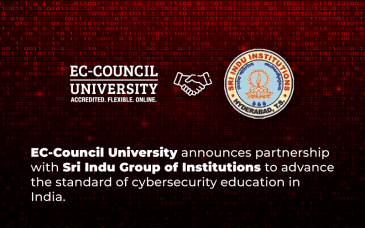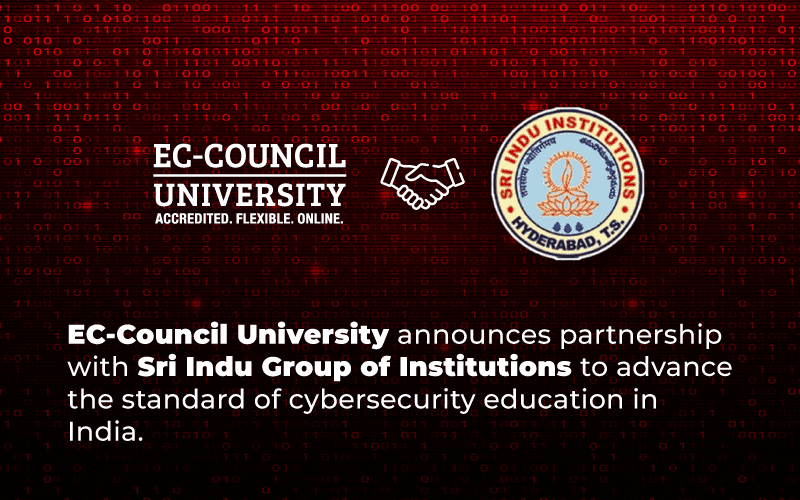Is a Cybersecurity Degree Worth It?
Organizations are increasingly concerned with cybersecurity threats that imperil their data and digital assets. The combination of the high demand for skilled security professionals and the growth of the global cybersecurity industry makes cybersecurity a promising career field.
Businesses rely on qualified security professionals to secure their IT infrastructure and data. Given this high demand and the cybersecurity talent shortage, organizations are willing to pay high salaries for skilled professionals. Today, as job seekers realize the benefits of obtaining the education needed for a career in this growing field, bachelor’s and master’s degrees in cybersecurity are becoming highly sought after.
Pursuing a bachelor’s or master’s in cybersecurity can give you a competitive edge in the industry. Employers value employees and job seekers with cybersecurity degrees or certifications, as these credentials show that an individual has the skills and knowledge needed for success in the workplace.
Why Pursue a Cybersecurity Degree?
A cybersecurity degree or certification will cement your position as a skilled leader capable of making strategic decisions that align with an organization’s business goals. Whether you are looking to advance your existing career or charting a new direction, here are some of the key reasons you should pursue a cybersecurity degree instead of a degree in a more traditional field.
Every Industry Needs Cybersecurity
Cybersecurity professionals play a vital role in securing an organization’s assets. Every organization, regardless of size, is at risk of data breaches and theft. Even government agencies are susceptible to cyberattacks, some of which could result in national security risks. As a cybersecurity professional, you can choose your area of expertise and work in just about any industry.
Opportunity for Growth
According to Fortune Business Insights (2022), the global cybersecurity market is expected to increase from USD 155.83 billion in 2022 to USD 376.32 billion by 2029, with a compound annual growth rate of 13.4%. These numbers show that the cybersecurity industry has huge growth potential, making it an excellent career choice.
The size and diversity of the cybersecurity industry also mean that a variety of career paths and specializations are possible. For example, you could choose to pursue work in digital forensics, incident response, network security and engineering, or any number of interesting and in-demand areas.
Huge Number of Job Openings
A degree in cybersecurity can help you gain the necessary skills and knowledge to be a player in a hot job market. In today’s ever-evolving threat landscape, cybersecurity experts are in high demand as employers across industries scramble to find talented and skilled professionals who can manage their IT infrastructure. Research by Cybersecurity Ventures found that more than 3.5 million cybersecurity positions went unfilled in 2021 (Morgan, 2021).
High-Paying Careers
According to the IT strategy firm ESG (Oltsik & Lundell, 2021), the lack of skilled cybersecurity professionals has impacted more than 57% of organizations. Given the continued increase in cybersecurity threats, organizations are willing to offer good pay and benefits to information security professionals.
Take a look at these average annual salary estimates for some of the highest-paying cybersecurity job roles:
- Digital forensic investigator: USD 66,614 (Payscale, 2022a)
- Ethical hacker: USD 79,618 (Payscale, 2022b)
- Security architect: USD 121,934 (Payscale, 2022c)
- Chief information security officer: USD 168,687 (Payscale, 2022d
- Penetration tester: USD 88,129 (Payscale, 2022e)
Challenging and Varied Work
Working in one of the fastest-growing niches in the IT field can be tough but exciting. Each day will be an adventure with new challenges. Some days, you might put your detective skills to the test in investigating a security incident, whereas on other days, you will have to pull out all the stops to prevent an attack. Although these tasks can be stressful, many cybersecurity professionals are motivated and fulfilled by the varied and fast-paced nature of their work.
Meaningful Career
As a cybersecurity professional, you will be entrusted with safeguarding your organization’s IT systems and sensitive information. You will take on the responsibility of protecting your employer’s resources, which in many cases will also involve shielding your coworkers and the organization’s customers from threats. Playing this mission-critical role can be very personally rewarding.
Invest in Your Future at EC-Council University
If you are interested in pursuing a career in cybersecurity, the first step is to obtain the relevant education and training. EC-Council University (ECCU) offers industry-recognized, university-level online cybersecurity programs with well-structured curricula designed by industry experts.
ECCU’s degree and certificate programs have been developed to equip you with the technical know-how and leadership skills to succeed in cybersecurity. The courses at ECCU are:
- Fully online, giving you the flexibility to complete your coursework on a schedule that works for you
- Mapped to globally recognized certifications, such as EC-Council’s Certified Ethical Hacker (C|EH) and Computer Hacking Forensic Investigator (C|HFI)
- Aligned with real-world job roles and specializations, ensuring that you are industry ready from day one
ECCU is accredited by the Distance Education Accrediting Commission (DEAC). For more details, visit: www.eccu.edu
Found this article interesting? Follow EC-Council University on Facebook, Twitter, Instagram and LinkedIn to read more exclusive content.
References
Fortune Business Insights. (2022). Cyber security market size, share & COVID-19 impact analysis, by deployment type, by enterprise size, by industry, and region forecast, 2022–2029. https://www.fortunebusinessinsights.com/industry-reports/cyber-security-market-101165
Morgan, S. (2021, November 9). Cybersecurity jobs report: 3.5 million openings in 2025. Cybercrime Magazine. https://cybersecurityventures.com/jobs
Oltsik, J., & Lundell, B. (2021). The life and times of cybersecurity professionals 2021 (Vol. V). Enterprise Strategy Group. https://www.esg-global.com/hubfs/ESG-ISSA-Research-Report-Life-of-Cybersecurity-Professionals-Jul-2021.pdf
PayScale. (2022a, May 3). Average digital forensic investigator salary. https://www.payscale.com/research/US/Job=Digital_Forensic_Investigator/Salary
PayScale. (2022b, May 3). Average ethical hacker salary. https://www.payscale.com/research/US/Job=Ethical_Hacker/Salary
PayScale. (2022c, May 3). Average security architect salary. https://www.payscale.com/research/US/Job=Security_Architect/Salary
PayScale. (2022d, May 8). Average chief information security officer salary. https://www.payscale.com/research/US/Job=Chief_Information_Security_Officer/Salary
PayScale. (2022e, May 8). Average penetration tester salary. https://www.payscale.com/research/US/Job=Penetration_Tester/Salary












